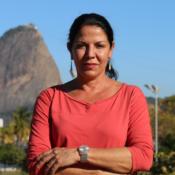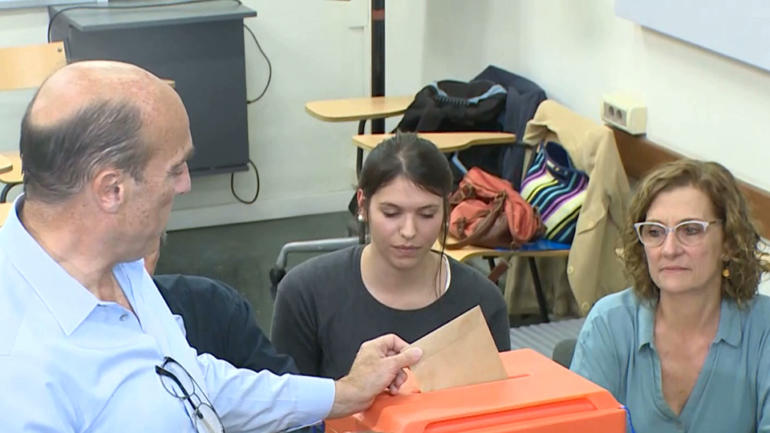Uruguay voted in a second-round election for president.
The opposition, center-right National Party candidate led in the opinion polls.
Analysts suggest he is likely to break the 15-year hold the liberal, Broad Front Party has had on Uruguayan politics.
CGTN’s Lucrecia Franco reports.
On election day, once again in Uruguay, voters lined up to cast ballots to decide who would be the country’s president for the next five years. Members of Congress were elected a month ago.
Polls indicated voters preferred the center- right National Party`s candidate, Luis Lacalle Pou, who was leading the race after coming in second in last month’s first round. He hoped his “Ahora si,” this time yes, political slogan would carry him to victory.
It’s the 46-year-old politician’s second run for president but, with the backing of a coalition of five opposition parties. This time he surged to a six to eight point lead over the Frente Amplio, Broad Front party, which has been in power for the past 15 years.
But former Montevideo mayor, Daniel Martinez, remained hopeful for a last-minute surprise, even though most analysts said the margin was insurmountable.
“There are very few cases where a party can hold on to power longer than 15 years, so yes, it is mostly that people are tired of seeing the same faces,” political analyst Adriana Raga said.
Voting is compulsory in Uruguay, where more than 2.7 million people are eligible to vote. Turnout is typically 90% and it could be higher now in this polarized election.
“My vote is for Luis Lacalle because he is honest, has been a serious congressman and he will definitely be better for all of us,” voter Ines Severini said.
“My option is for Martinez of the Broad Front. There are two projects for this country, progressive, that is the one I am choosing and conservative, which I reject,” voter Matias Erdely said.
According to polls, the challenge to boost a sluggish economy and address public security are two major concerns among voters. A simple majority will determine who will take office on March 1.
 CGTN America
CGTN America
 Uruguay voted in a second-round election for president.
Uruguay voted in a second-round election for president.
